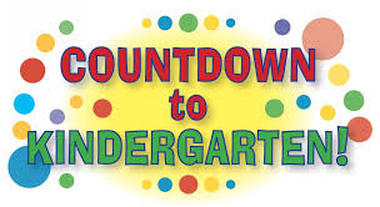Before school starts
- Tell the teacher and the office if your child has allergies or special needs. Do this even if you have indicated this on other forms already. It may be critical for teachers to know that your child reacts to bee stings, has food allergies, or has hearing or vision modifications.
- Start your school routine early. To reduce stress and get used to new routines adjust new bedtimes or wake up times a few weeks before school begins. Routines are comforting for us and for children. Read a soothing bedtime story every night to help your child fall asleep with comforting thoughts.
- Label everything. Make sure to label backpacks, lunch boxes, hats, shoes - everything your child brings to school.
- Read books together about starting school. You can ask your local librarian for suggestions or try some of these:
- Seven Little Mice Go to School, Kazuo Iwamura
- Mom, It’s My First Day of Kindergarten, Hyewon Yum
- Yoko Learns to Read, Rosemary Wells
- Be positive. Give your child a smile and a hug, tell her you love her, and wave goodbye at the door.
- Help your child say goodbye. Saying goodbye in a new setting can be frightening for some children. When you say goodbye, reassure your child that you will see him later. Mention a specific time and a concrete activity, for example “I will pick you up before lunchtime and we will have lunch together.”
- Avoid behaviors that might upset your child. For example, try not to:
- Cry as you wave goodbye.
- Battle with your child about an outfit you want him to wear.
- Force your child to eat a big breakfast. She may be nervous and it might be better to eat lightly than to have a stomachache, for the first couple of days.
- Be supportive. Adjusting to school may take time. Ask, “What was the most fun thing you did in school today?” Then ask, “What was the hardest thing for you?” Don’t expect your child to tell you every detail.
- Instill a sense of confidence in your child. Celebrate your child’s successes. Tell her that you are proud of the way she got her shoes on all by herself, or the way she tried to print her name. Don’t dwell on how many friends she has made during the first few days. This is too abstract for most 5-year-olds and their friends change by the minute. Instead, ask, “Tell me about some of the children in your class.” It takes time to adjust to new people, new activities, and a new environment.
- Set aside a time, each evening, to share your child’s day. See if your child has brought home any drawings, paintings, or scribbling. These papers may be very important to your young student. After a few weeks have passed and your child has gotten used to school, ask her about what she played with in the classroom, what stories the teacher read, if she went outside, etc.
- Read everything the school sends home. During the first weeks of school children bring home a wealth of information about school routines, important dates, and events that you will need to know about. Make sure to check your child’s backpack, and the class blog. Also, you may want to go over with your child, in a positive, calm way, the information you have supplied to the school on the emergency card (who may pick your child up other than you, where she can go if you’re ever not home, etc.).
- Enjoy being the parent of a kindergartner! This is your child’s first step into primary school and a unique time in childhood. Enjoy!

